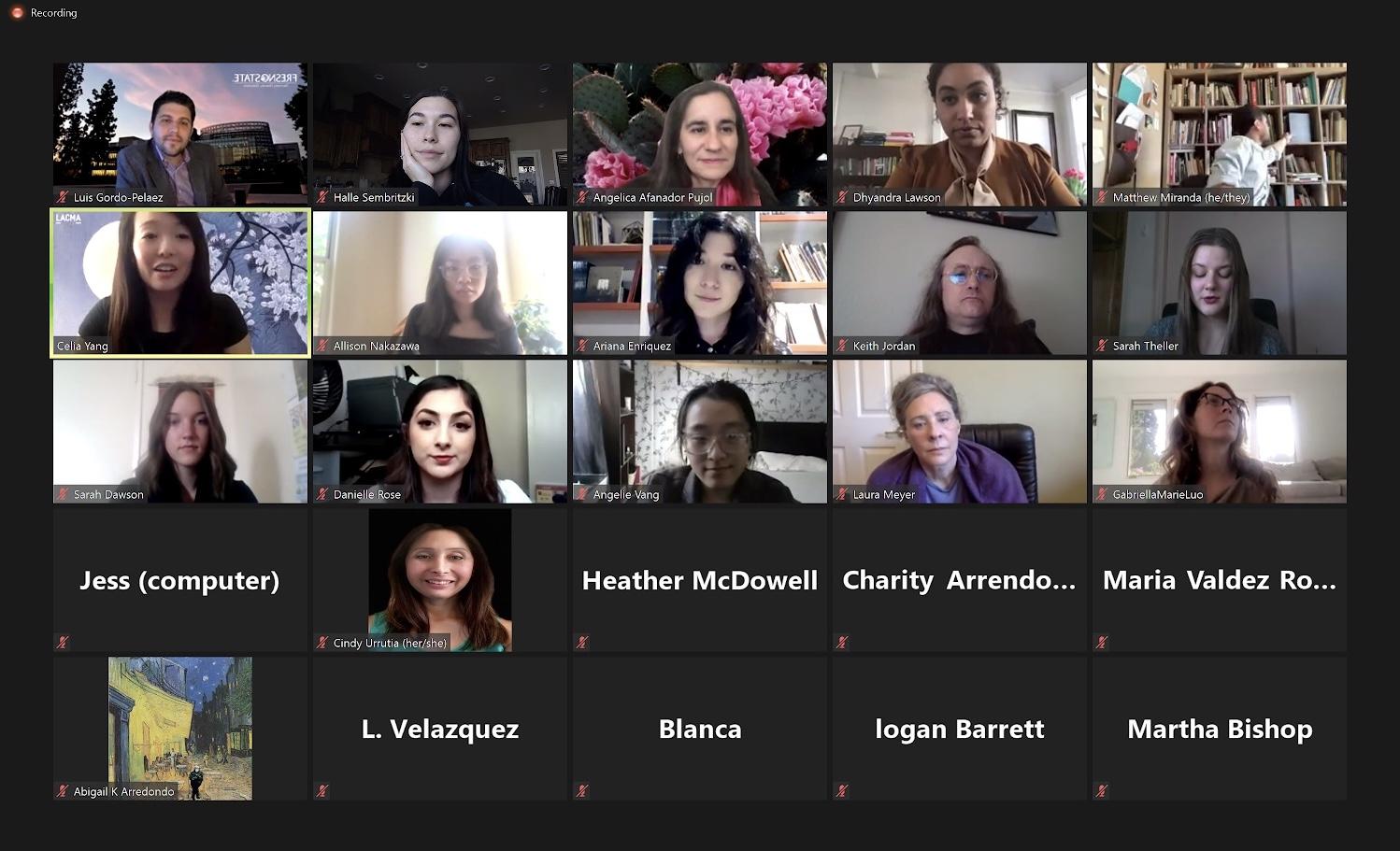As another round of online learning persists, two clubs are struggling to recruit members during the pandemic.
For Sarah Theller, president of the art history club at Fresno State, her organization remains functional but has been impacted by COVID-19.
“I would say COVID-19 has affected membership,” Theller said. “As we are operating entirely virtually, it has been difficult to recruit more members with so many students experiencing Zoom fatigue.”
Theller is an art history graduate student at Fresno State who launched her club during the pandemic and believes students may be reluctant to join at this time.
“I suppose you could say the timing of launching the club was just a bit coincidental with the pandemic,” Theller said in an email. “We all had to adjust.”
The art history club communicates through Zoom every Friday and currently has eight members.
Theller said the group recently discussed potential events which are to be held virtually but, “It can be difficult to convince students to join an extracurricular club when they already have so many Zoom meetings each week.”
In terms of finances, Theller said her organization is doing well despite the global pandemic thanks to the support of the Associated StudentsInc. (ASI) at Fresno State.
According to ASI Vice President of Finance Nicholas Moore, ASI provides club assistance in a number of ways, one including budgeting for fiances.
“ASI manages the banking for the majority of clubs on campus to help reduce the risk of having funds mismanaged or lost due to officer transitions,” Moore said.
“Another way ASI helps clubs is through the various grants we offer.”
ASI currently offers a number of grants which are meant to assist clubs financially throughout each semester.
For instance, the Club Booster Grant provides funds that are meant to sustain the organization throughout the year, and the New Club Grant provides financial support for promotional material such as t-shirts, flyers and more.
Despite launching a club during a global pandemic, Theller’s optimism keeps her hopeful for the future of the organization.
“We hope to become more involved in the College of Arts and Humanities at Fresno State with more events, such as a guest speaker series and even art historical film nights to encourage students to become involved with the field of art history,” she said.
Another club at Fresno State that has felt the effects of the pandemic is the anime club which has been at Fresno State since 2015.
According to Analisa Cerda, former president and pre-vet major at Fresno State, the organization isn’t operating normally and cited the global pandemic as a direct cause.
“It’s gone a little bit downhill [club meetings], but that’s because of the whole pandemic. I can’t go and pass out flyers or physically seek out people,” Cerda said.
“We do post stuff, but it’s not the same. At Fresno State, you can put posters on the Kiosk and people would walk by and see it.”
Rather than meeting on campus, which is not allowed at this time, the anime club communicates with members using Discord, a text, voice and video messaging platform.
To date, the anime club has 93 members on Fresno State’s Engage service and just as many participants on Discord.
Unlike other clubs on campus, membership fees in the anime club are nonexistent, which acts as an incentive for members to join free of charge.
“I felt like charging people would make them not want to join because that’s happened with me with other clubs where I didn’t want to be in it anymore because they wanted money from me,” Cerda said.
The anime club’s new president Nancy Alfaro, a liberal arts major, also shared a similar feeling and said she is limited on funds as a college student and believes her money is better spent elsewhere.
Regardless of the pandemic, both Cerda and Alfaro shared optimism for what’s to come and mentioned that the club accepts anyone who is interested in joining.
“We have a lot of members that are just busy all the time, but every once a while they post a meme or something,” Cerda said.
“You’ll always be in the club, even if you’re not actively in discussions or go[ing] to meetings.”

